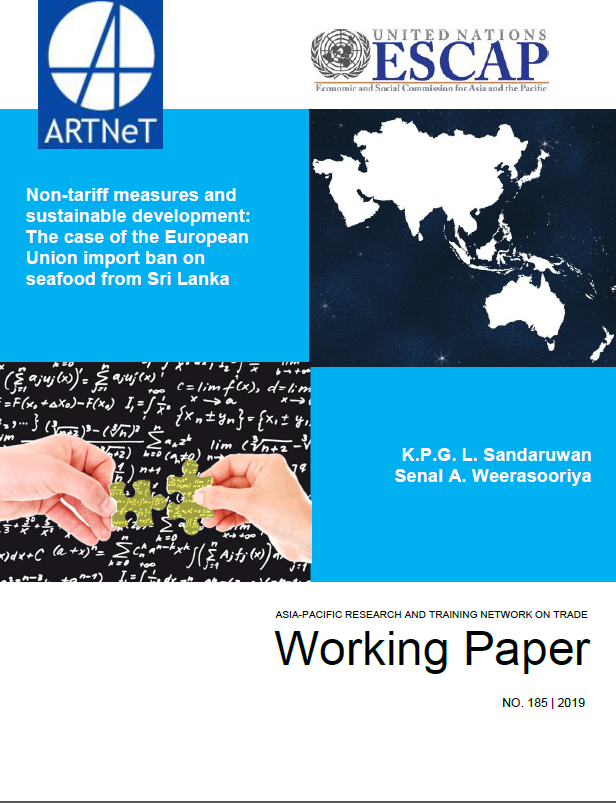Non-tariff measures and sustainable development: The case of the European Union import ban on seafood from Sri Lanka

Non-tariff measures (NTMs) can affect trade performance of trading partners. In addition to trade performance, the NTMs (including sanctions) may have direct and indirect linkages to capacity of trading partners to meet their commitments under Sustainable Development Goals (SDGs). The purposes of this research were to explore the performance of exports of seafood industry of Sri Lanka before, during and after the imposition of European Union’s ban in January, 2015 and to develop indicators and measure the impact of the same ban on stakeholders of the seafood industry in Sri Lanka by looking through the prism of sustainable development. More specifically, this study applied composite indicator approach with min-max normalization, arithmetic mean aggregations and weighting techniques to assess impact on several of SDGs. The principal component analysis was performed to identify the best sub-indicators for the composite indicator. During the period when the ban was in force, Sri Lanka seafood industry experienced lower revealed competitive advantage score, market concentration score and growth rate than at other times. Further, the findings revealed that the ban generated mixed effects on SDGs. Due to the ban, SDG 12 (responsible production) and SDG 14 (life below water) have been positively impacted while SDG 1 (no poverty) and SDG 8 (economic growth) were adversely affected. The research recommends that unilateral and ad hoc decisions should not be taken regarding NTMs because they have very sensitive and invisible linkages with SDGs. Furthermore, when there are legitimate need to impose such NTMs, sufficient time should be given to the trading partners to put in place measures and actions for compliance with such NTMs.
